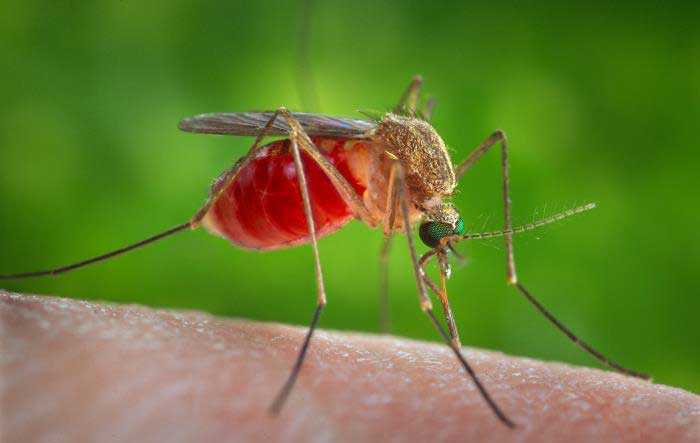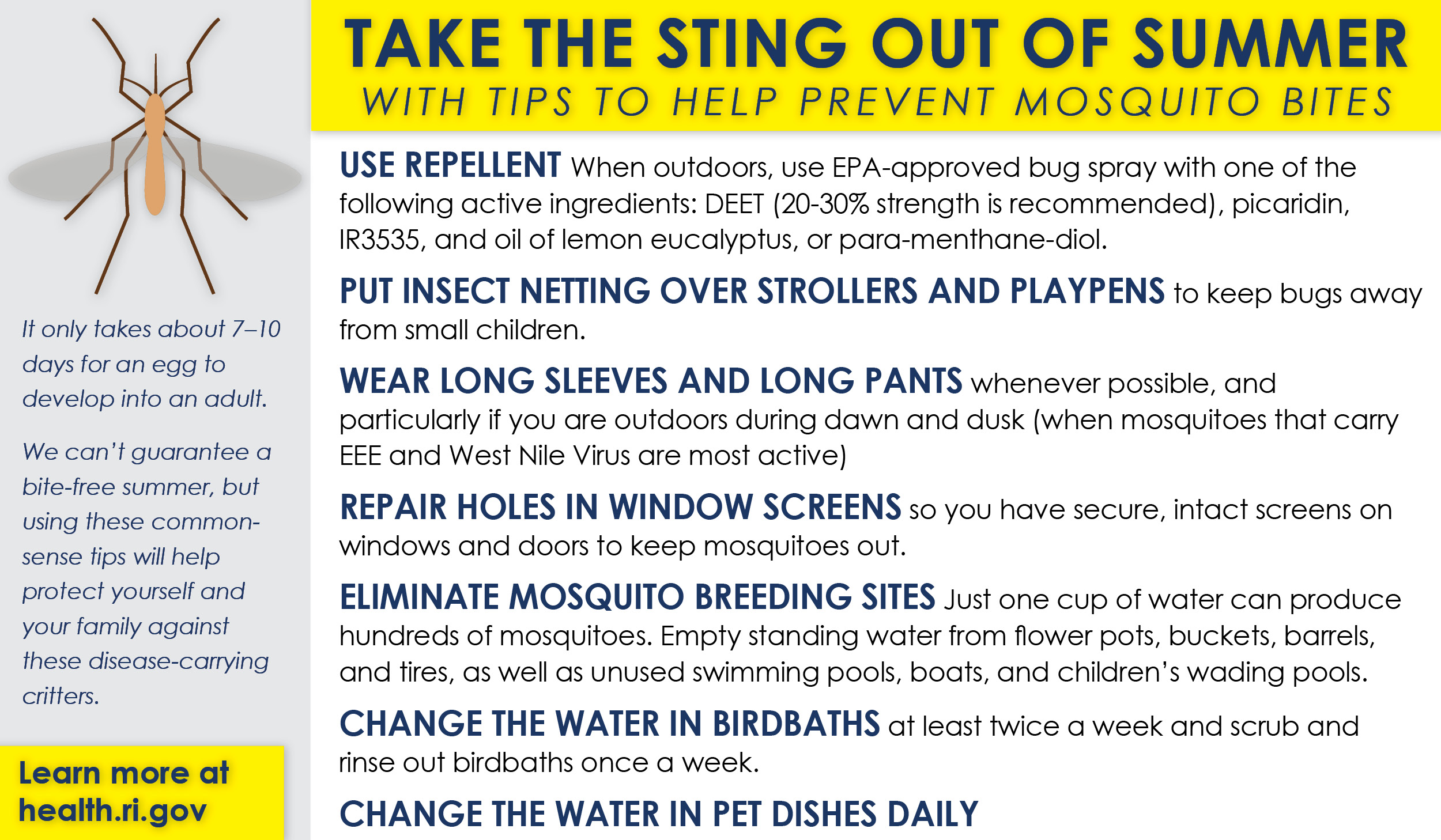No EEE or human cases of either WNV or EEE - yet
The Department of Environmental Management (DEM) today announced that the most recent round of testing by RIDOH State Health Laboratories has confirmed one new positive isolation (finding) of West Nile Virus (WNV) collected Aug. 30 from a trap in Johnston.
DEM collected 82 pools (samples) of mosquitoes from 23
traps set statewide Aug. 26-30. Results are pending for mosquitoes trapped Aug.
31- Sept. 9. To date, the state has confirmed five positive WNV findings, but
no mosquito samples have tested positive for Eastern Equine Encephalitis (EEE).
WNV
is much more prevalent than EEE. It has become established in North America
following its introduction in 1999. To date this summer, 154 pools of
mosquitoes trapped in Connecticut and 108 mosquito pools in Massachusetts have
tested positive for WNV.
Connecticut
has confirmed three WNV cases in humans and Massachusetts has confirmed four
human cases and one alpaca case. The positive findings in Connecticut,
Massachusetts, and Rhode Island indicate that WNV has established seasonal
activity in our area.
WNV
will become more prevalent as the season progresses, so DEM and the Rhode
Island Department of Health (RIDOH) advise residents to reduce their exposure
to mosquitoes until the first hard frost. There have not been any findings of
EEE in mosquito pools in Connecticut, Massachusetts, or Rhode Island.
Personal
protection is the first line of defense against mosquitoes that may carry WNV,
EEE, or other diseases – and the most effective way to avoid infection. With
WNV established in the state, residents are reminded to eliminate mosquito
breeding grounds and prevent being bitten, whenever possible. The following
precautions are advised.
Protect
yourself:
Best practices for horse owners:
Horses
are particularly susceptible to WNV and EEE. Horse owners are advised to
vaccinate their animals early in the season and practice the following:
-
Remove or cover areas where standing water can collect.
-
Avoid putting animals outside at dawn, dusk, or during the night when
mosquitoes are most active.
-
Insect-proof facilities where possible and use approved repellents frequently.
-
Monitor animals for symptoms of fever and/or neurological signs (such as
stumbling, moodiness, loss of appetite) and report all suspicious cases to a
veterinarian immediately. If you are unsure if your horse is properly
vaccinated, you should consult with your veterinarian.
Visit health.ri.gov/mosquito for additional mosquito prevention tips, videos, and local data. DEM and RIDOH also remind Rhode Islanders to take precautions to avoid mosquito bites when traveling to Zika-affected countries. Pregnant women and women who are considering becoming pregnant should not travel to countries with active transmission of Zika. Mosquitoes are trapped weekly by DEM and tested at the RIDOH State Health Laboratories.
DEM issues advisories on test
results from July through September, with additional reports as necessary. Test
results are pending for the traps set statewide Aug. 31-Sept. 9 and will be
included in future announcements. Typically, positive test results trigger
additional trapping to assess risk.
Related links

